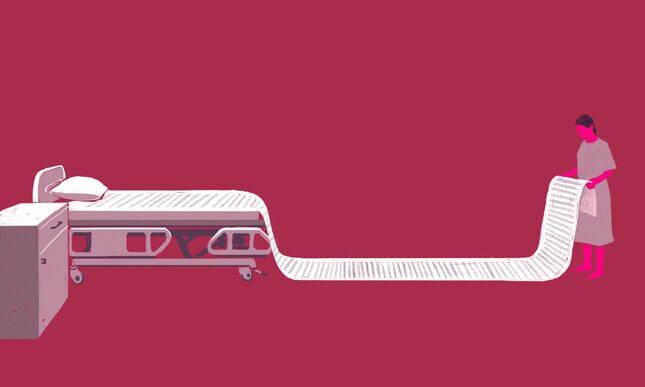All My Pre-Existing Conditions and Me
Politics

Like most people my age, I found out that the American Health Care Act of 2017 (AHCA) had passed the House of Representatives via social media. My Twitter feed was filled with outrage about defunding Planned Parenthood and so my rage focused there, too. I wrote my representatives, composed a tweet of my own, decided to donate my time and money, and vowed that the next time I saw some old, white men protesting outside of my local Health Center I would give them more than just a dirty look. I thought that was the worst of it.
But the next day, I saw #IAmAPreExistingCondition trending on Twitter, and after that, my entire outlook on the AHCA changed. As I scrolled through the tweets, it hit me that the AHCA could destroy more than just my reproductive rights. It could ruin my whole life.
I had never had to deal with insurance issues like this before. I was covered under my mother’s insurance until I took my first job —ironically enough, working in a phone bank for a company that mainly denied appeals for Medicare coverage— and none of my health struggles emerged until months after I’d been hired. Too late for Blue Cross Blue Shield to hold them against me. When I switched to insurance I selected under the Health Insurance Marketplace in 2015, no insurance provider could deny me coverage, raise my premiums, or refuse to pay for benefits because of a pre-existing condition. The same held true when I became a Massachusetts resident in 2016 and applied for MassHealth. I didn’t even know how many pre-existing conditions I had. I panicked, googled “American Health Care Act pre-existing conditions,” and read everything I could find from reliable sources.
According to The Henry J. Kaiser Family Foundation, CNN, Time, Rolling Stone, New York Magazine, the Center for Medicare and Medicaid Services (CMS), and NH Health Cost, I have 17 pre-existing conditions that, before the ACA took effect, insurers could have used as an excuse to refuse to cover me or to severely raise my premiums, including:
- A mild-to-moderate alcohol use disorder.
- Back pain.
- Mental disorders, including: Mild agoraphobia. Anxiety. ADHD. Bipolar disorder. Complex post-traumatic stress disorder (C-PTSD). Depression. Seasonal affective disorder.
- Menstrual irregularities.
- Sleep disorders, including:
- BruxismREM Sleep Behavior Disorder.
- Trauma as a result of domestic violence and sexual assault.
Oh, and I guess I should also mention that I’m into BDSM and being choked, as those are sexual masochism disorders listed in the DSM-V. Why? Because according to experts interviewed by Time, having a “sexual deviation or disorder” could be a problem. Considering the Vice President’s stance on LGBTQ+ rights, being a queer, gender non-conforming, polyamorous woman who often wears men’s clothes may also be an issue, especially since it’s in my psychiatrist’s files.
This brings my grand total to 19 pre-existing conditions. If you count my sexuality, dating lifestyle and gender expression, that’s 22. Based on my family history, I’m at risk for three more—Alzheimer’s, breast cancer, and diabetes— and since I’ve applied for disability twice, that could also factor against me, according to Senator Sherrod Brown (D-OH). It can take no more than one of my medical conditions to disqualify me from coverage or to make my premium so high as to be unaffordable.
-

-

-

-

-

-

-

-

-

-

-

-

-

-

-

-

-

-

-

-

-

-

-

-

-

-

-

-

-

-

-

-

-

-

-

-

-

-

-

-








































